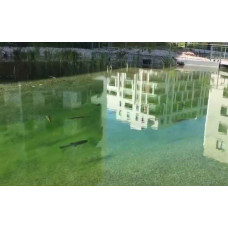The use of water for domestic purposes. Water use is often associated with changes in the species composition of the flora and fauna of water bodies. Rational water use contributes to the conservation and reproduction of natural fish stocks and the development of artificial fish farming.
Water resources management is the activity of planning, developing, distributing and managing the optimal use of water resources. Water resources management is one aspect of water cycle management. Water is essential to our survival. The field of water resources management must continue to adapt to current and future water challenges. With the growing uncertainty of global climate change and the long-term consequences of management actions, the decision-making process will become even more complex. It is likely that ongoing climate change will lead to situations that have not yet occurred. As a result, alternative management methods are being sought to avoid disruptions in the distribution of water resources. Ideally, water resource management planning takes into account all competing water needs and seeks to allocate water on an equitable basis to meet all uses and needs. As with other issues, this is rarely possible in practice. One of the major challenges for our water resources in the future is the sustainability of the current and future allocation of water resources. As water becomes scarcer, the importance of water management increases significantly - balancing the needs of people and ensuring the sustainability of water resources in the environment.
Water is the most important resource for all life on our planet. Only 2.5 per cent of the world's water is fresh. Two-thirds of fresh water is locked up in ice caps and glaciers. Of the remaining one per cent, a fifth is located in remote, hard-to-reach areas, and much of the seasonal rainfall during floods is not easily accessible.
Water is becoming scarcer over time, and access to clean, safe drinking water is limited in many countries. Currently, only about 0.08 per cent of the world's fresh water is used by humanity to meet ever-increasing demands for sanitation, drinking water, manufacturing, recreation and agriculture. Due to the small percentage of water remaining, optimising the fresh water we have left from natural resources has been a constant problem in several places around the world.
Significant efforts in the field of water resources management are aimed at optimising water use and minimising the impact of water use on the environment. Water monitoring as an integral part of the ecosystem is based on integrated water resources management, where the quantity and quality of the ecosystem help to determine the nature of the natural resources. As a limited resource, water supply is a problem. This is the premise of the DESAFIO project (Democratisation of Water Supply and Sanitation Management through Socio-technical Innovations), developed over 30 months and funded by the European Union's Seventh Framework Programme for Research, Technological Development and Demonstration.
This project tackled a difficult problem for developing areas: the elimination of structural social inequalities in access to essential water and health services. DESAFIO engineers worked on a solar-powered and filtered water treatment system to provide safe water to a very poor community in the state of Minas Gerais. Successful management of any resource requires accurate knowledge of the resources available, how they are used, competing resource needs, measures and processes for assessing the importance and value of competing needs, and mechanisms for translating policy decisions into action on the ground.
In general, new management participants should create new experiences and share their experiences with outsiders to spread the message of the government to make this new policy. Turning water into a resource is particularly difficult because water sources can cross many national boundaries, water use is difficult to value in monetary terms, and it can also be difficult to manage under normal conditions. Examples include rare species or ecosystems, or the very long-term value of ancient groundwater reserves, sometimes known as fossil water.
Water Management
Tags: Water Management

